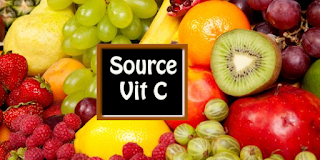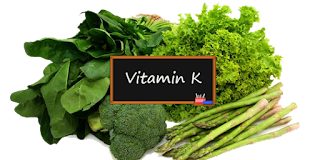Vitamin C in Boosting the Immune System. Vitamin C plays an essential role in supporting the immune system by contributing to various cellular functions of both the innate and adaptive immune system. It is a potent antioxidant and a cofactor for a family of biosynthetic and gene regulatory enzymes. Vitamin C supports epithelial barrier function against pathogens and promotes the oxidant scavenging, especially in groups such as the elderly or in individuals exposed to risk factors for infections. Vitamin C also helps heal wounds and repair and maintain healthy gums, skin, and cartilage. Although it may not prevent catching a cold, there is some evidence that supplemental vitamin C may help decrease the length and severity of colds. Vitamin C is found in many fruits and vegetables, including citrus fruits, tomatoes, potatoes, strawberries, green and red bell peppers, broccoli, Brussels sprouts, and kiwifruit, among others.
Some food sources of vitamin C include:
1. Citrus fruits: Oranges, kiwi, lemons, and grapefruit
2. Bell peppers: Red and green peppers
3. Strawberries
4. Tomatoes
5. Cruciferous vegetables: Broccoli, Brussels sprouts, cabbage, and cauliflower
6. White potatoes
7. Kiwifruit
8. Papay
9. Guava
10. Black currants
11. Cantaloupe
12. Parsley
13. Mustard spinach
14. Chili peppers
15. Kale
16. Brussels sprouts
These foods are rich in vitamin C, which is essential for maintaining a healthy immune system and overall well-being. Consuming a variety of these foods can help ensure you get enough vitamin C in your diet.
How much vitamin c should be consumed daily
The recommended daily amount of vitamin C varies depending on age and gender. Here are the RDA (Recommended Dietary Allowance) for different life stages:
- Birth to 6 months: 40 mg
- 7–12 months: 50 mg
- 1–3 years: 15 mg
- 4–8 years: 25 mg
- 9–13 years: 45 mg
- Teens (14–18 years): 65–75 mg
- Adult women: 75 mg
- Adult men: 90 mg
- Pregnant women: 85–120 mg
- Pregnant teens: 80 mg
For optimal health, it is essential to consume a variety of vitamin C-rich fruits and vegetables. Some examples of vitamin C-rich foods include:
- 1 cup (8 ounces) of orange juice: 97 mg
- 1 cup of broccoli, cooked: 74 mg
- 1/2 cup of red cabbage: 40 mg
- 1/2 cup of green pepper: 60 mg
- 1/2 cup of red pepper: 95 mg
- 1 medium kiwi: 70 mg
- 1 cup of tomato juice: 45 mg
While many people may not always get the optimal level of vitamin C, having a vitamin C deficiency is rare in the U.S. and other countries. The safe upper limit for vitamin C is 2,000 mg a day, and there is a great track record with strong evidence that taking 500 mg daily is safe. However, it is essential to consult with a healthcare professional before starting any supplementation regimen.
What are the benefits of vitamin c for overall health
Vitamin C has numerous benefits for overall health. It is a powerful antioxidant that can strengthen the body's natural defenses, boost immunity, and reduce the risk of chronic diseases like heart disease and dementia. Vitamin C can also lower blood pressure, protect against gout attacks, and improve iron absorption. Additionally, vitamin C is essential for the biosynthesis of collagen, L-carnitine, and certain neurotransmitters, and it plays a vital role in wound healing. Vitamin C is also an antioxidant that helps protect cells against the effects of free radicals, which can contribute to the development of health conditions such as cancer, heart disease, and arthritis. While vitamin C supplements are a great way to boost vitamin C intake, it is important to consume a variety of vitamin C-rich fruits and vegetables for optimal health.
Implications of Optimal Vitamin C Levels
Maintaining optimal levels of Vitamin C in the body has broader implications for overall health. In addition to supporting the immune system, Vitamin C also plays a role in:
a. Wound healing: Vitamin C aids in the formation of collagen, a protein necessary for wound healing and tissue regeneration.
b. Anti-aging: As an antioxidant, Vitamin C fights free radical damage that can lead to premature aging and cell damage.
c. Iron absorption: Vitamin C enhances the absorption of iron from plant-based foods, helping to prevent anemia.
Conclusion:
In maintaining the health of the immune system, the role of Vitamin C cannot be overlooked. By consuming Vitamin C-rich foods and ensuring an adequate intake, we can boost immune resilience, reduce the risk of infections, and support overall body health. The implications of maintaining optimal Vitamin C levels include better wound healing, protection against premature aging, and improved iron absorption.
By making Vitamin C an integral part of our daily diet, we can build a strong foundation for long-term health. Such a simple step can have a significant positive impact on the well-being of our body and mind.











